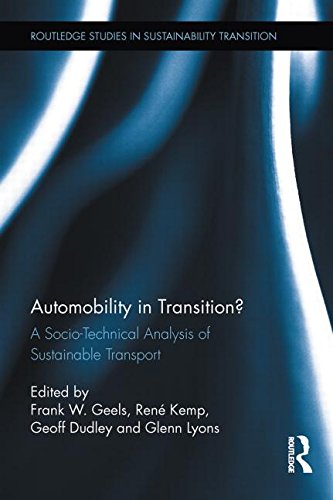

Most ebook files are in PDF format, so you can easily read them using various software such as Foxit Reader or directly on the Google Chrome browser.
Some ebook files are released by publishers in other formats such as .awz, .mobi, .epub, .fb2, etc. You may need to install specific software to read these formats on mobile/PC, such as Calibre.
Please read the tutorial at this link: https://ebookbell.com/faq
We offer FREE conversion to the popular formats you request; however, this may take some time. Therefore, right after payment, please email us, and we will try to provide the service as quickly as possible.
For some exceptional file formats or broken links (if any), please refrain from opening any disputes. Instead, email us first, and we will try to assist within a maximum of 6 hours.
EbookBell Team

4.0
6 reviewsIs the automobility regime experiencing a transition towards sustainability? To answer that question, this book investigates stability and change in contemporary transport systems. It makes a socio-technical analysis of transport systems, exploring the strategies and beliefs of crucial actors such as car manufacturers, local and national governments, citizens, car drivers, transport planners and civil society. Two guiding questions are: Will we see a greening of cars, based on technological innovations that sustain the existing car-based system? Or is something more radical desirable and likely, such as the development of travel regimes in which car use is less dominant?